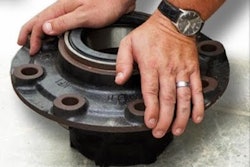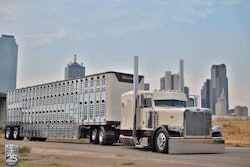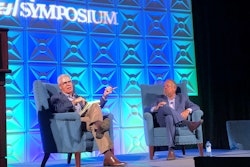Trucking news and briefs for Wednesday, Aug. 18, 2021:
Werner petitions FMCSA for pre-CDL waiver for trainees
Werner Enterprises (CCJ Top 250, No. 11) has petitioned the Federal Motor Carrier Safety Administration for a waiver to allow commercial learner’s permit holders who have successfully passed the CDL skills test to essentially be able to drive in team operations.
The request asks that the pre-CDL drivers be able to drive a truck without having a CDL holder in the front seat of the truck with them.
Werner says the waiver will help the company improve the efficiency of its operations “by maximizing driver employment during an historic driver shortage.” The company adds that the waiver would create immediate employment and compensation opportunities for qualified drivers and improve “the overall safety of the new driver experience.”
The company adds that, without the exemption it would “face a significant burden in all three areas.”
FMCSA is requesting public comment on Werner’s petition, which can be made for 30 days beginning Wednesday, Aug. 18, by searching Docket No. FMCSA-2021-0118 at www.regulations.gov.
Several carriers have received similar exemptions from FMCSA, including C.R. England, New Prime and CRST Expedited.
New federal drug testing form takes effect Aug. 30
A revised Federal Drug Testing Custody and Control Form (CCF) was approved by the Office of Management and Budget last year, and the new form will be required beginning Aug. 30.
In a notice published last week, the U.S. Department of Transportation said beginning Aug. 30, DOT-regulated employers and their service agents (collectors, laboratories, Medical Review Officers) must use the revised CCF.
According to DOT, most of the changes adopted in the revised CCF were made to accommodate the use of oral fluid specimens for the federal drug testing program. However, oral fluid drug testing is not authorized in DOT’s drug testing program.
Employers can obtain the revised CCF from a Department of Health and Human Services-certified laboratory.
Convoy launches power-only service for private fleets
Digital freight network Convoy has launched a new power-only service as part of its Convoy Go program, providing private fleets with nationwide capacity to haul their pre-loaded and empty van trailers.
Convoy’s power-only freight service can save up to 30% of the cost for these trailer moves for shippers, while also helping carriers maximize asset utilization and earn more money.
Over the last three years, the company has developed its own drop-and-hook service called Convoy Go, providing shippers with power-only tractors and a fleet of several thousand trailers.
This service is built on machine learning models that predict trailer demand weeks in advance and intelligently reroute trailers to facilities where they’re needed. This eliminates the costs of spillover to the live spot market when drop-and-hook demand increases, and minimizes trailer underutilization when demand recedes.
The expansion of Convoy Go provides power-only capacity to haul private fleet trailers. Convoy supplements the private fleet’s existing tractor capacity to more efficiently rebalance trailer pools and deliver pre-loaded trailers.
“Today’s announcement is the next natural step in reinventing the drop-and-hook market,” said Ziad Ismail, Chief Product Officer at Convoy. “After building a nationwide network of power-only carriers, we’re now opening up our network to private fleets with a much-needed service and a level of efficiency and flexibility that previously was not possible.”











